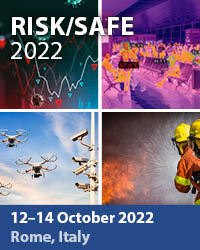Fire Behavior Modeling Based On Simulated Field Plots
Price
Free (open access)
Transaction
Volume
158
Pages
11
Page Range
27 - 37
Published
2012
Size
926 kb
Paper DOI
10.2495/FIVA120031
Copyright
WIT Press
Author(s)
A. Beutling, A. C. Batista & R. V. Soares
Abstract
The objective of this research was to develop and adjust fire behavior models based on simulated field plots methodology. The experiment was carried out at the Canguiri Experimental Farm, owned by the Federal University of Paraná, located in Pinhais County, Paraná State, Brazil. Twenty two plots, measuring 2.0 x 6.0 m, were assembled using pine tree tops (1.8 to 2.0 m high) standing in the ground, in order to simulate natural field conditions. Fuel load (2.0 kg.m-2 of dry needles), layer thickness (16 cm), and fuel disposal (homogeneously distributed) were pre-determined. During the burns wind speed, air temperature, and relative humidity were monitored. Fire propagation along the plots produced rate of spread varying from 0.003 to 0.061 m.s-1, flame heights between 0.75 to 5.63 m, and fire intensity from 30.19 to 582.22 kcal.m-1.s-1. The results allowed the development and adjustment of models to estimate fire front intensity based on flame height and wind speed, and models to estimate the rate of spread based on flame height, wind speed, and relative humidity. Keywords: prescribed burning, fire behavior, fire models. 1 Introduction Fire behavior studies and evaluation constitute an important tool to help fire prediction and suppression activities. However, fire is such a complex phenomenon, involving chemical and physical reactions, that makes difficult an efficient behavior prediction. On the other hand, keeping constant the variables involved in the combustion reaction, and varying only one component at time, it is possible to identify the influence and importance of the elements that compose an experimental fire. Such methodology, however, is far away from reality, Modelling, Monitoring and Management of
Keywords
prescribed burning, fire behavior, fire models.





